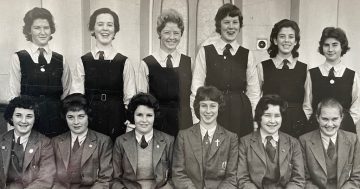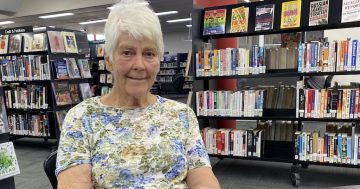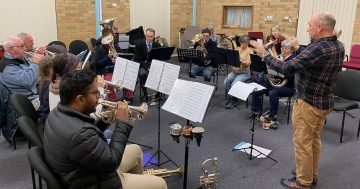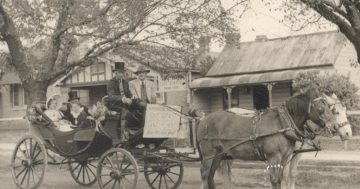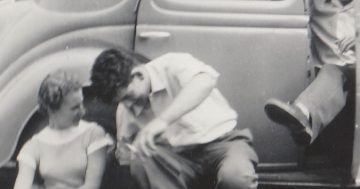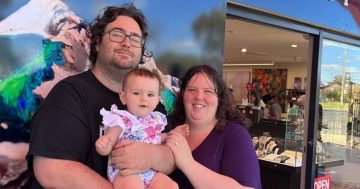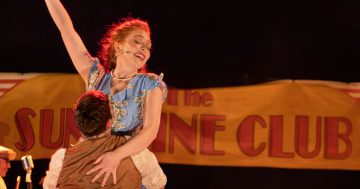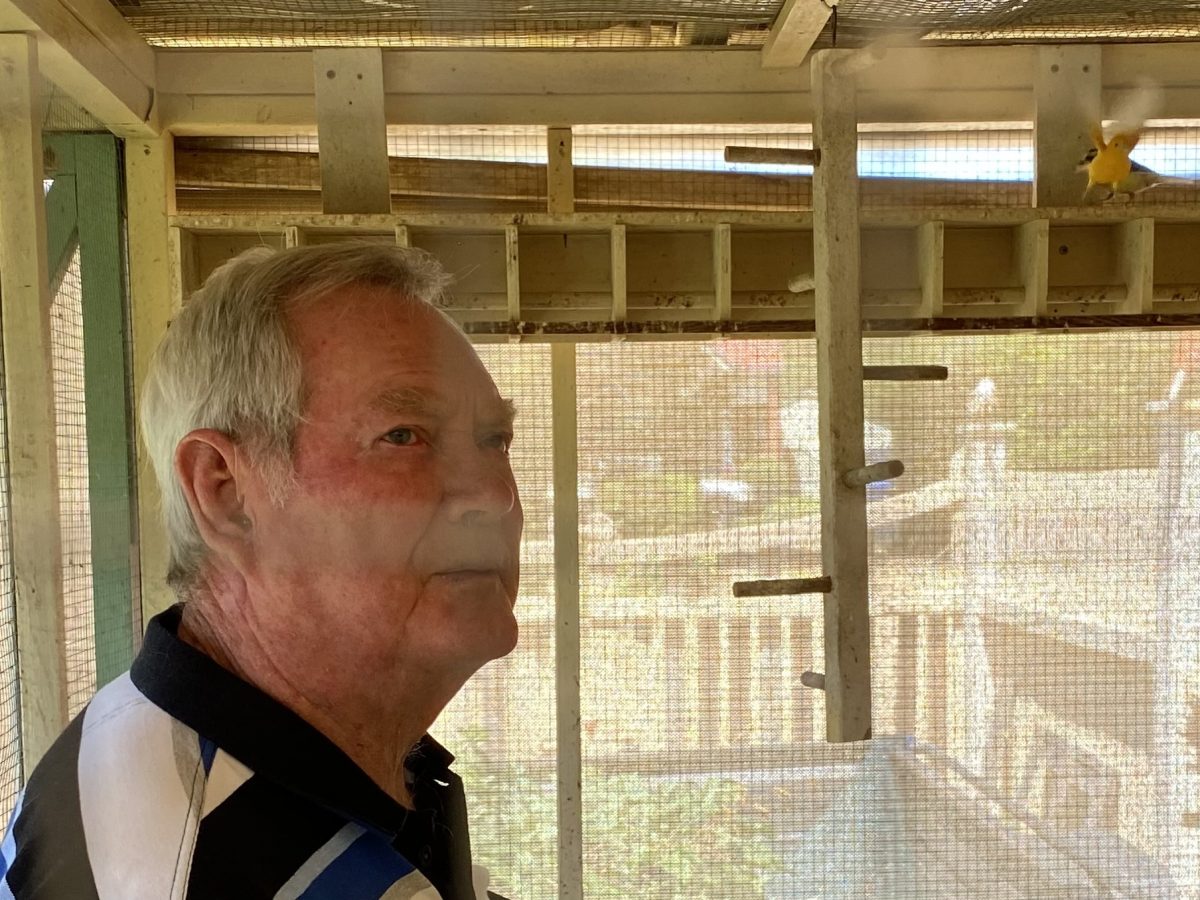
Alan Milne once bred canaries, building up numbers to about 50 in his aviary and shared his interest with numerous like-minded people in clubs in Yass and Goulburn. Only three canaries remain, as Alan moves on to other pastimes. Photo: John Thistleton.
In retirement Alan Milne continues drawing on his social capital, the kind that helped him transform Goulburn East Primary School in 1976 from the forgotten poor cousin of local schools to the beating heart of Eastgrove.
Like most people in a lifelong habit of joining organisations, he has witnessed a shift in Goulburn’s collective social capital, the term given for networks of relationships among people which enable society to function.
He belonged to the Lions Club of Goulburn City for 20 years, encouraged by Des Rowley and Greg Muffett. He still belongs to a model train club, meets two of his fellow retired principals each week, has rejoined a tennis group and previously stepped up for numerous community causes and was among the Goulburn Runners and Walkers.
In 2000 political scientist Robert Putman wrote about America’s demise of social capital. In his influential book Bowling Alone he showed Americans have disengaged from community involvement, stopped attending public meetings and serving on committees.
Alan says Goulburn’s social landscape has definitely changed since he and his wife Margaret arrived here for his first appointment as a school principal and raised their two daughters, Emma and Kate.
They loved attending the Apex Club’s trivia nights but saw this fall away as the service clubs dwindled. Goulburn once had two Lions Clubs – it has one today. Three Rotary clubs have been reduced to one. Apex no longer exists. A lawn bowls club in Fenwick Crescent closed permanently.
He believes these days many people, himself included, want to do things by themselves. “Because if you involve others, that ties you to them, and you in some way must see things their way, or do things the way they want it,” he said.
The issue never arose when he began Goulburn East Primary School’s turnaround. More pressing issues confronted him.
“It surprised me, a lot of the Year 6 kids had never been across to town, a quarter of a kilometre away,” he said. “Their parents shopped during the day, probably grew some of their food and these kids didn’t have the opportunity to get to the other side of the town proper. That was the start of a desire to improve things for them generally.”
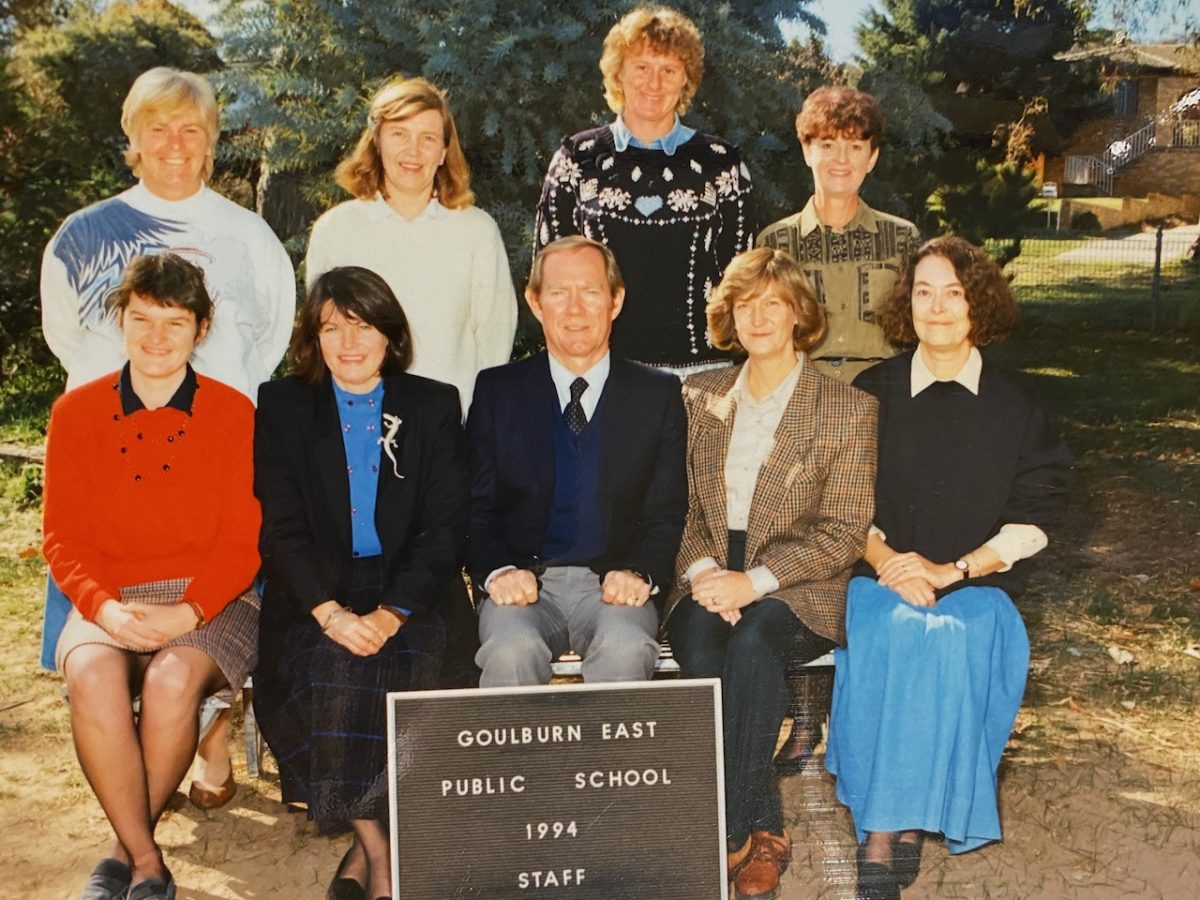
Goulburn East Primary School’s teachers in 1994: left front row, Helen Mary Kennedy, Nicky Manning, Alan Milne, Heather West, Margaret Milne. Back row, Pat Strachan, Elaine Hunt, Sonia McDonald and Margaret Byrne. Photo: Milne family collection.
Three or four parents joined him each weekend to build a tennis court that was subsequently opened to everyone in the Goulburn community.
As trees planted along Park Road in memory of World War II soldiers died away, Goulburn East planted shrubs in the school grounds as replacements.
Margaret Gooch headed up a dynamic Goulburn East Parents and Citizens Association fundraising to build a school hall in which all the children and teachers could meet, instead of squeezing into a classroom. “I believe we were the first place to run markets in that hall, and gradually, the churches and other people started their own markets,” he said.
The P and C also looked beyond the school, donating $1000 for a new hydrotherapy pool at St John of God Hospital (since closed).
He has enjoyed the benefits of social capital working with his neighbour to replace the 50-metre paling fence that separates them, and engaged and paid a carpenter from the Men’s Shed to give them a hand. “They have a list of people who can do things, mow for old people, ex-plumbers who will do plumbing work if you’re having troubles,” he said.
A teacher at his school, Michael Lipscomb, talked him into helping set up the Sydney Royal Easter Show’s Southern District’s display. Under the leadership of Michael’s wife Margie, and featuring the region’s finest rural produce, the display has often been judged the state’s best. “I got to know a few people and liked what it was all about. It had a festive feel about the whole thing,” Alan said.
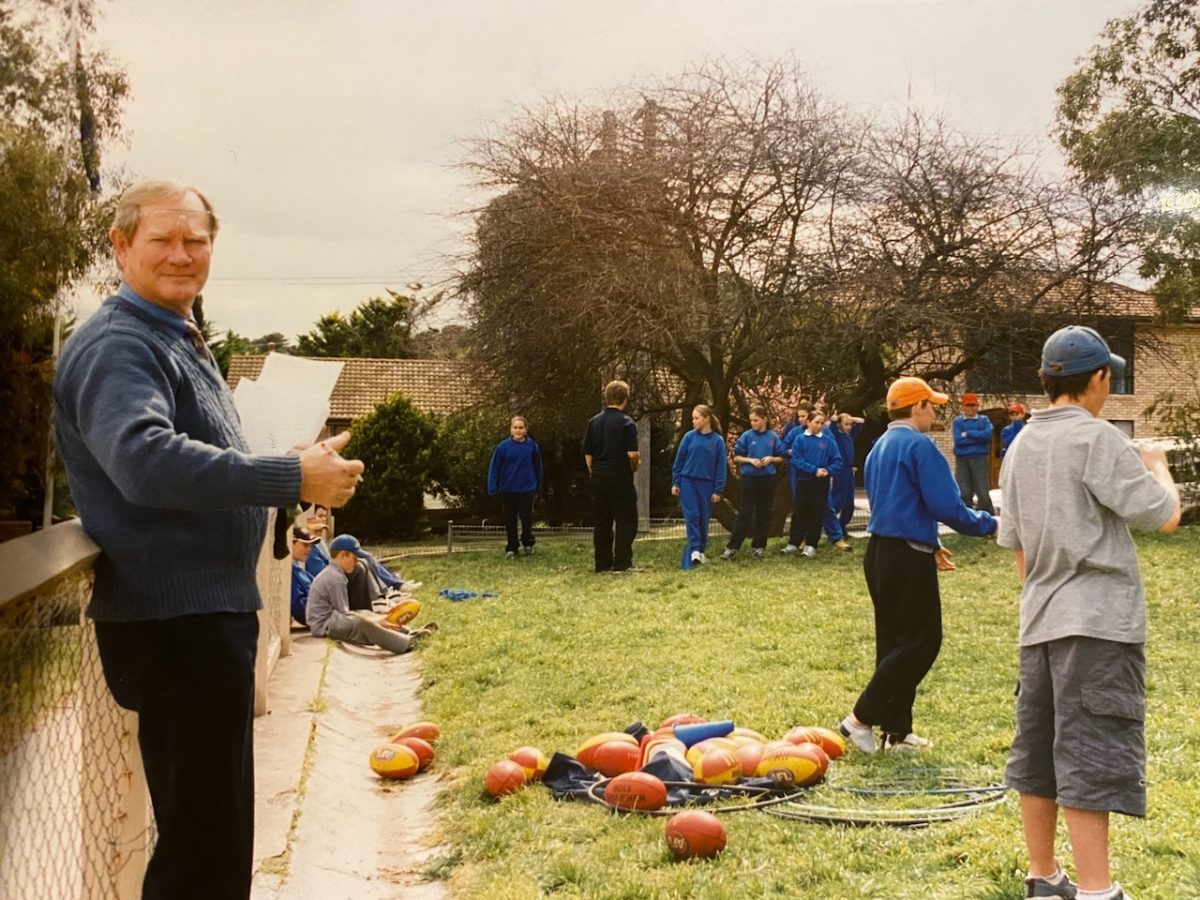
Principal Alan Milne in 1987, the year Goulburn East Primary School celebrated its centenary. Photo: Milne family collection.
One of 35 members of the Argyle Model Railway Society, he enjoys the camaraderie. “It sounds funny, old men running trains around a track,” he said. “A lot of the time the trains run on and we just prattle among ourselves. We have a home away from home – heaters, fans, we’re getting air conditioning; we carpeted our room recently.”
Alan is from a generation of joiners who can be found in places like the University of the Third Age, hanging on to their social capital and valuing it more than ever before.







